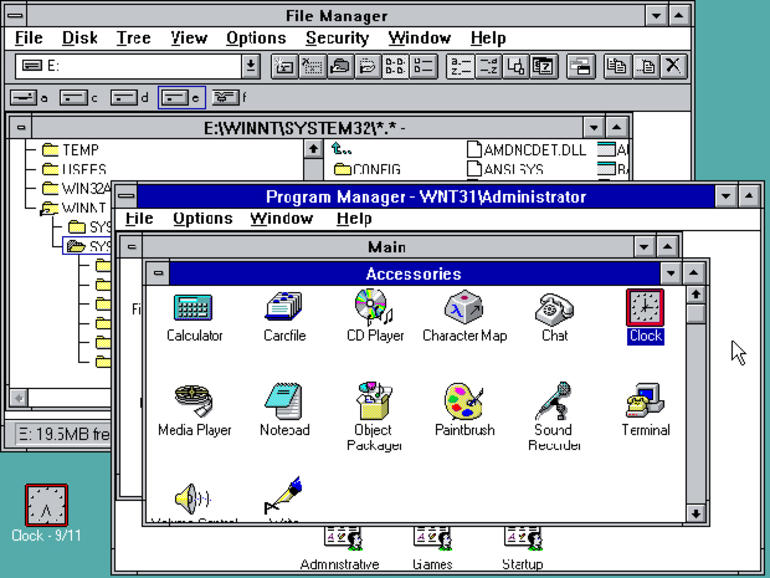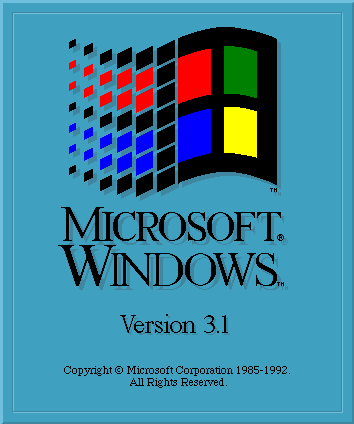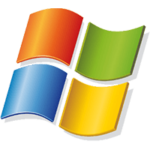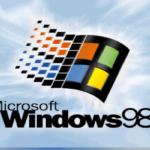Windows 3.1 was a 16-bit operating system which at the time of its development was codenamed as ‘Janus’. The operating system was made as well as sold by Microsoft corporation and was meant to be used on personal computers in a home environment. It was the first operating system in the series of Windows-based operating systems which was the 3.1.x series of operating systems. It was ultimately replaced by the new Windows 95 operating system which provided 32-bit support instead of just the 16-bit support given by Windows 3.1.
Windows 3.1 was first released for sale in the month of April of the year 1992. Windows 3.1 was meant to replace the older Windows 3.0 operating system by Microsoft. The new operating system made a lot of feature improvements over the older Windows 3.0 operating system and also to the codebase to the base operating system that is MS-DOS. The new improvements to the code base ensured improved performance as well as stability. It also brought upon better support for media content as well as Workgroup networks. It was also the first operating system to introduce True type fonts.
Overview of Windows 3.1 ISO
Back in March of 1992, Microsoft started marketing its latest 16-bit working framework Windows 3.1 which was meant to replace the older Windows 3. Windows 3.1 was the 4th type of Microsoft’s GUI-based working structure, which was discharged to the general society in 1993. Windows 3.1 was a paid update of Windows 3.0 which had got such a great amount of fame to the point that Microsoft charged for the newer codebase changes instead of offering it as a free update to Windows 3.
Before the times of the Start menu, Microsoft had an application called the program administrator which was presented back in Windows 3. This program enabled clients to start different projects without utilizing a CUI based interface or a command line. Windows 3.1 introduced the Start menu which replaced the Program Manager on Windows 3.0 and earlier operating systems.

Windows 3.1 was not vastly different graphically at all from its predecessor Windows 3.0 with 16-bit hues next to some little trendy changes. Windows 3.1 features included help for TrueType content styles and shared frameworks organization or distributed systems administration (p2p) as we call it these days.
The new frameworks organization capacity was one of the central factors in the advancement of the client-server structure that despite everything we are generally running on today, both in-home and business PCs and furthermore in web models of the operating systems.
Performing various tasks at once was additionally upheld in Windows 3.1. Clients could utilize the assignment list to switch between applications. The assignment list even had an alternative to tile applications which is like what we look like at Windows snap (Win + Tab) in more current renditions of Windows. This menu gave access to the list of running tasks. Clients could press the Control button along with the escape key as a console easy route to get to the list of running tasks.
Different applications, for example, the Windows write application was incorporated with Windows 3.1. The compose application for Windows called Windows Write gave fundamental word preparing capacities in Windows 3.1. Windows 3.1 likewise introduced the TrueType period for Windows. Windows 3.1 likewise accompanied a paint program. In spite of the fact that today is referred to as MS-paint, it was known as paintbrush once upon a time.
Since Windows was rapidly advancing toward the PCs market away from the business based applications of Windows, Microsoft needed to make the framework simple to utilize by commoners who do not hold a degree in computers. This is the motivation behind why Windows 3.1 not just had a cleaner interface contrasted with different variants of Windows however they incorporated some valuable instructional exercises that helped clients figure out how to utilize the operating system and do various tasks easily. Furthermore, on the off chance that you were truly lost in utilizing the assistance application, you could even look into help “on the best way to utilize the assistance” application.
Minimum System Requirements for Windows 3.1 ISO
Windows 3.1 was a graphical interface for the MS-DOS operating system which was a command-line operating system. To run the Windows 3.1 operating system, you don’t need to have a lot of specifications but it is not recommended to run it on modern hardware natively. You are recommended to install Windows 3.1 ISO on a virtual machine which supports DOS called DOSbox. One more reason why you cannot install Windows 3.1 natively on modern hardware is that it requires an IBM compatible computer to run Windows 3.1 ISO. Here is a list of Windows 3.1 system requirements:-

- You will need a fully IBM compatible computer as mentioned earlier.
- Windows 3.1 requires an Intel 80386 or higher processor aka a “386” system
- The memory of 2MB or better RAM
- 8MB Hard disk drive space
- 3.5 inch or 5.25-inch floppy disc drive
- VGA video support is needed for output
- Keyboard and Mouse are required for input controls.
- MS-DOS version 3.1 or higher is required.
How to install Windows 3.1 ISO
Since we have talked so much about windows 3.1 and all its features, let’s get it running on your computer. If you want to install the Windows 3.1 ISO, you will have to extract the. ISO files and with the help of an emulator which is meant to run Windows 3.1 called DOSBox, install it on your PC. For that just follow the steps mentioned:
- Download the Windows 3.1 ISO image to your PC which is meant to be run on a virtual machine.
- Load the Windows 3.1 ISO into a virtual machine application which supports 16 bit operating systems like Dosbox and go to the D: drive in DOSBox and after that run setup.exe.
- Now that you have the Windows 3.1 ISO as the boot disk loaded into Dosbox. Run the setup.exe and start the express installation.
- Just follow the on-screen instructions which can be followed easily. Enter a username when the system asks for the user name.
This is how you can install Windows 3.1 on your computer. You can also use windows 3.1 iso download for VirtualBox to install Windows 3.1 if this method doesn’t work for you.






Windows 3.1 was first released for sale in the month of April of the year “1002”.
Correct the year in quotes
Thanks for the correction, We appreciate it! 🙂
Thanks! I will use this in VMware!
lol
Thanks🙂